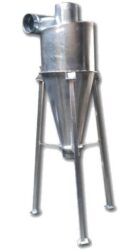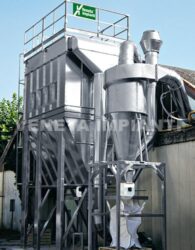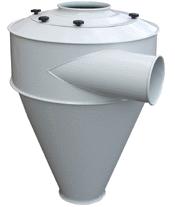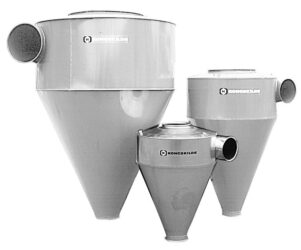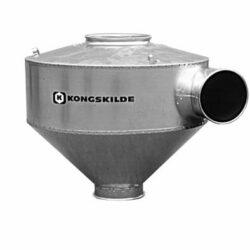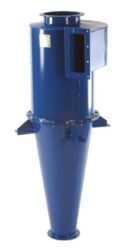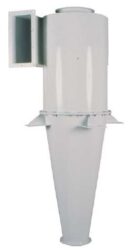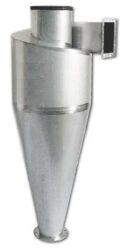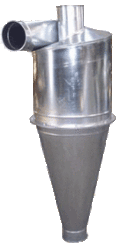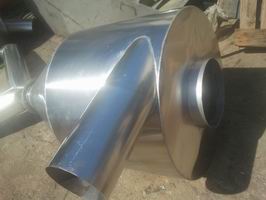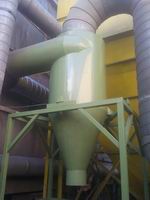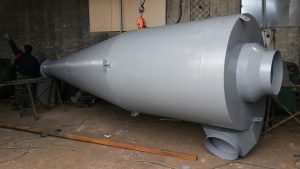Cyclones – Dust Cyclones
Cyclones (or dust cyclones) are used in pneumatic conveying piping systems and in dust suction systems to separate/filter the heavier particles. Cyclones have a top outlet usually with a filter. At their bottom outlet, a rotary valve or a bucket is placed. Cyclones depending on their size and geometry achieve different degrees of separation of the heavier particles from the lighter (equivalent to fine dust).
Painted steel cyclones – CYCLONE JA
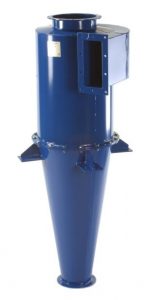
Type JA painted steel cyclones are used for grain separation at the end of a grain air conveying line or in a dust suction line before (the filter and) the fan. The cyclones are welded from 2 or 3-mm thick steel sheets and painted with anti-rust powder coating corrosion class C3. Optionally, a hatch is provided in the conical section.
Diameter: Ø400 – 2350 mm
Height: 1465 – 8500 mm
Airflow: 1000 – 60,000 m 3 /h
Galvanized steel cyclones – CYCLONE CS
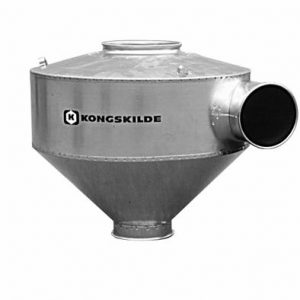
cyclones
CS-type cyclones have a helical inlet (the geometry of the inlet forces the air to follow a spiral helical motion). They are used, among others, in the wood processing industry (chips/sawdust), in the paper industry, in grain cleaning (corn cleaning), for grain drying, and in many other applications. They are made of galvanized sheet metal. Optionally, a cleaning window is provided in the conical part.
Diameter: Ø800 – 2014 mm
Height: 1980 – 3450 mm
Air flow: 1000 – 30,000 m 3 /h
.
Air suction cyclones – CYCLONES UC
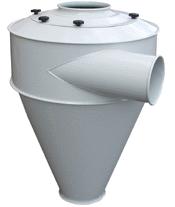
UC-type air transport cyclones are designed for pneumatic conveying systems with pipe diameter Φ160mm. They are used, among others, in grains, plastic flakes, plastic pellets, and in general granular products. They are placed at the end of the conveying line. In cases of products that have dust, it is good to provide the outlet filter internally (filter basket – cylindrical screen inside the air outlet of the cyclone, which filters). The outputs of these cyclones are intended for airflows up to 2’500 m3/h.

